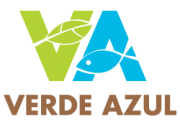Inclusive Economic Growth through the Sustainable Use of Natural Resources in Niassa Province: Malonda Program
Client – Government of Niassa and SIDA
Location – Niassa – Mozambique
Year – 2000 – 2007
Time – 7 years
Verde Azul was instrumental in the development and management of the Malonda Program, a private sector development program in the province of Niassa, Mozambique. The program was funded by the Government of Mozambique and the Swedish Cooperation Agency for International Development.
Verde Azul presented proposals to subsequently establish a sustainable institutional structure for the Malonda Program.
The Malonda Foundation established as essential services in its area of activity: providing support to local communities by increasing the efficiency of companies related to reducing barriers to bureaucracy; risk and transactions established at the Malonda Foundation.
During the management of Verde Azul, five forestry companies were certified by FSC, which started operations in Niassa, in partnership with Malonda. They are currently implementing a planned management to reforest more than 500,000 ha of degraded land. More than 3,000 new direct jobs have been created by 2007. This path is expected to continue in order to reach at least 15,000 new jobs within ten years. From here, the implementation of several companies took place and the railroad was restructured.
A large protected area of 110,000 ha has been created, Monte Mosale, which is important for the protection of ecosystems and the biodiversity of the province.
Responsibilities included: design, execution, coordination, monitoring and planning, regular performance assessment (operational and financial) and reorientation of activities. It also involved identifying investment opportunities in collaboration with the Provincial Government and promoting investments and business negotiations with investors and stakeholders in Forestry, Agriculture, Tourism and Wildlife.
Subsequently, communities were assisted in how to plan the use of their land by external and independent experts, and VA also provided legal support. The communities decided to relinquish some of their rights in favor of implementing commercial establishments in exchange for job creation and infrastructure development.
Verde Azul developed a model for the recognition of collective rights and the communities were brought into direct relations with investors.
The process was implemented with the support of FAO, Fundação Aga Khan, TechnoServe and with independent experts such as Sevy Madureira do Brasil and Christopher Tanner from FAO providing guidance and support throughout the process.
The process for obtaining the right to use the land was implemented in accordance with the Mozambican land law (published in 1997).
Furthermore, it focused on a process of Free and Informed Consent regarding the delimitation of all areas that legally belong to local communities, as well as prioritizing the mapping of areas with high conservation value.
The Malonda strategy focused on respect for indigenous communities and their right to make informed and inclusive decisions. Local communities were encouraged to take charge of the speed and negotiation process in the various debates that led to the creation of the Malonda Foundation.
A Malonda Resource Center was opened in Maputo and a headquarters in Lichinga was created. Once the institutions were legalized and the board of directors held their first meetings, Verde Azul delivered the program to be carried out by the Administration and by an executive director and his team.










